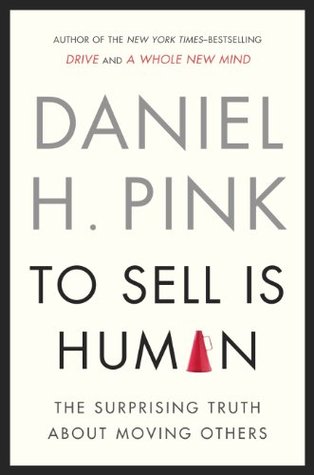More on this book
Community
Kindle Notes & Highlights
Read between
February 18 - February 25, 2019
Selling without a sales force sounds like confirmation of the “death of a salesman” meme. But Cannon-Brookes, the company’s CEO, sees it differently. “We have no salespeople,” he told me, “because in a weird way, everyone is a salesperson.”
a distinction between “irritation” and “agitation.” Irritation, he says, is “challenging people to do something that we want them to do.” By contrast, “agitation is challenging them to do something that they want to do.”
“It’s about leading with my ears instead of my mouth,” Ferlazzo says. “It means trying to elicit from people what their goals are for themselves and having the flexibility to frame what we do in that context.”
Be like Bob: Practice interrogative self-talk. Next time you’re getting ready to persuade others, reconsider how you prepare. Instead of pumping yourself up with declarations and affirmations, take a page from Bob the Builder and pose a question instead. Ask yourself: “Can I move these people?”
The more you explain bad events as temporary, specific, and external, the more likely you are to persist even in the face of adversity.
As Fredrickson explains, “Life gives us plenty of reasons to be afraid, angry, sad, and then some. Without negativity you . . . lose touch with reality. You’re not genuine. In time, you drive people away.” So allow yourself what she dubs “appropriate negativity”—moments of anger, hostility, disgust, and resentment that serve a productive purpose.
“It is in fact the discovery and creation of problems rather than any superior knowledge, technical skill, or craftsmanship that often sets the creative person apart from others in his field.”8
Today, both sales and non-sales selling depend more on the creative, heuristic, problem-finding skills of artists than on the reductive, algorithmic, problem-solving skills of technicians.
Today, when information is ubiquitous, he said the premium is now on “the ability to hypothesize,” to clarify what’s going to happen next.
We often understand something better when we see it in comparison with something else than when we see it in isolation.
the most essential question you can ask is this: Compared to what?


